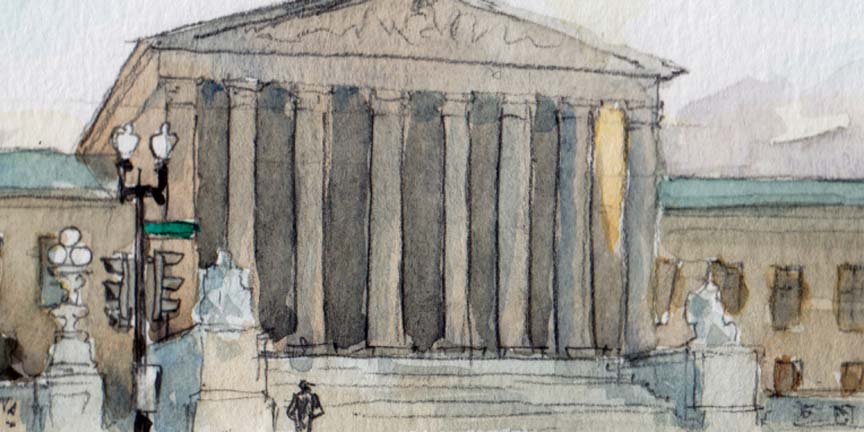Opinion analysis: Court rejects per se rule on cross-examination in Social Security disability cases

The Supreme Court yesterday turned down a Social Security Disability Insurance plaintiff’s proposal to establish a per se rule effectively requiring vocational experts to turn over the data underlying their opinions in every case. Michael Biestek had asked the court to decide that testimony from such an expert who declined a request to turn over underlying data could never suffice to meet the Social Security Administration’s statutory obligation to support its decisions with “substantial evidence.” The court took great pains to emphasize that it was not holding that testimony unsupported by data would suffice in any particular class of cases, or even in Biestek’s own case. The effect of this 6-3 decision by Justice Elena Kagan therefore is likely to be quite limited.
When an individual applies for disability benefits from Social Security or Supplemental Security Income, the SSA first seeks to determine whether the claimant is either obviously disabled or obviously not disabled. If those steps do not produce a definitive result, the agency undertakes the more complex task of determining whether the claimant can return to her or his past relevant work and, if not, whether she or he can perform other work that exists in substantial numbers in the national economy. When the claimant’s only impairments limit her or his ability to engage in physical exertion, regulations provide a standardized basis for the agency’s decision.
When some non-exertional impairments are also present, however, the agency must establish which jobs, if any, the claimant can perform, with the aid of a vocational expert. These experts typically are labor economists or professionals engaged in placing people with disabilities into jobs. The SSA’s administrative law judge asks them questions about whether a claimant with a hypothetical set of impairments could find work that exists in substantial numbers. If the ALJ’s assessment of the claimant’s impairments matches one of the hypotheticals put to the vocational expert, the decision should be controlled by the expert’s assessments. The vocational expert therefore has enormous influence of the case’s outcome: A favorable vocational expert sometimes can help a claimant more than a sympathetic judge.
The vocational expert in Biestek’s case found that Biestek could do two jobs that existed in substantial numbers in the national economy. Biestek’s lawyer asked to see the data underlying that opinion, but the witness declined to provide it because the data appeared in client files that contained confidential information. The ALJ supported the vocational expert’s refusal to produce redacted versions of those files and ultimately ruled against Biestek, relying heavily on the expert’s testimony. A federal district court and the U.S. Court of Appeals for the 6th Circuit affirmed. Before the Supreme Court, Biestek argued that a failure to produce the underlying data upon request renders an expert’s opinion inadequate under all circumstances to support a finding of no disability.
Kagan responded with an extremely narrow opinion for the court’s majority. Taking Biestek’s petition for review at face value, she hypothesized a case in which an eminently qualified vocational expert might have a good reason not to submit all data underlying the crucial opinion but might otherwise be highly credible. Kagan was not prepared to state that such an expert’s opinion could never support a decision to deny benefits: “Where Biestek goes wrong, at bottom, is in pressing for a categorical rule, applying to every case in which a vocational expert refuses a request for underlying data.” Because Biestek had asked the court to consider only whether it should impose such a rule, Kagan saw no reason to go any further, declining to “decide whether, in the absence of that rule, substantial evidence supported the ALJ in denying him benefits.”
Justice Neil Gorsuch dissented, in an opinion joined by Justice Ruth Bader Ginsburg. In his view, the Supreme Court has a duty to decide the merits of Biestek’s case. On the record before the court, Gorsuch found no justification for the vocational expert’s withholding her underlying data. Rather than addressing a hypothetical best case of a vocational expert’s withholding data, as the majority did, Gorsuch would have looked at Biestek’s particular case and held that the largely conclusory opinion of the expert could not constitute substantial evidence. Justice Sonia Sotomayor also dissented, agreeing with much of Gorsuch’s reasoning and finding that the government had failed to carry its burden of justifying the denial of benefits in this case.
Posted in Merits Cases
Cases: Biestek v. Berryhill